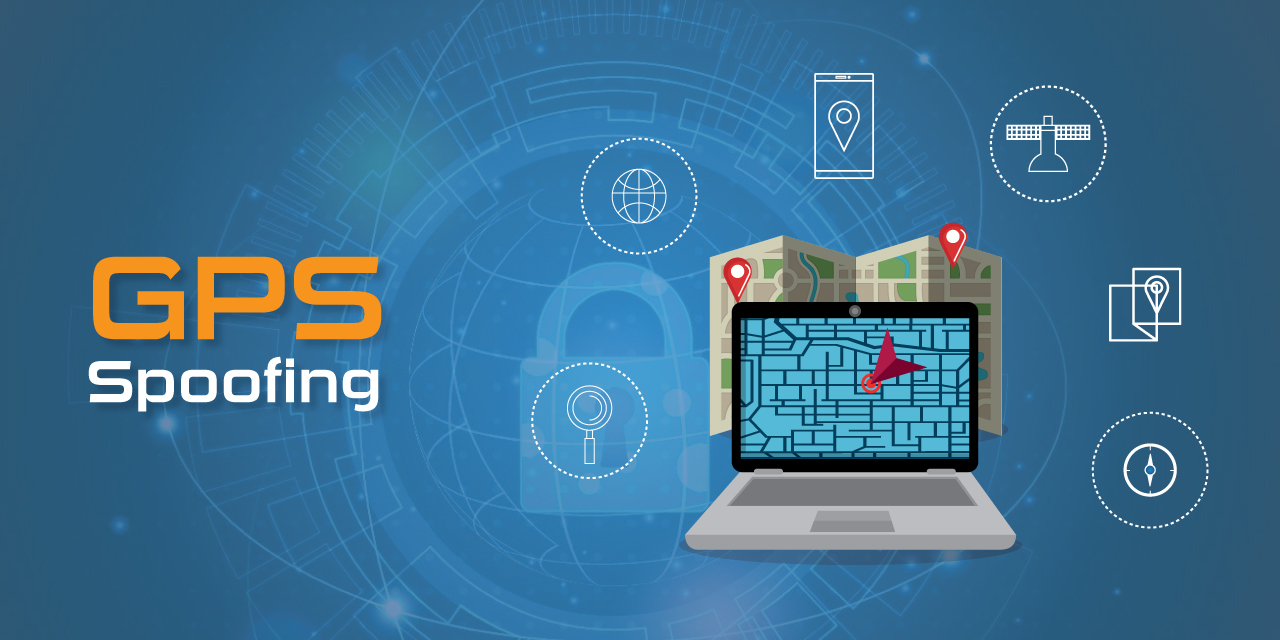
Global Positioning System (GPS) technology has revolutionized our lives with navigation, location-based services, logistics, and emergency services. We use it on a daily basis to travel from point A to point B, and GPS plays an important role in guiding us on how to get there. However, the benefits of GPS technology come with a risk, GPS spoofing. GPS Spoofing is a malicious act that undermines the reliability of GPS systems. In this article, we will discuss GPS spoofing, explore its implications, discuss detection and prevention methods, and examine the legal and ethical aspects of this threat.
What is GPS Tracking?
GPS tracking refers to accurately determining the location of a person, vehicle, or asset in real time. GPS tracking systems consist of GPS receivers, tracking devices, and software applications that facilitate the collection, analysis, and display of tracking data. A good example of a GPS tracker in action is ride-sharing apps like Uber and Lyft, where customers and drivers share their location data and they are depicted on the user's map.
The GPS system is developed by the United States government. It is a network of satellites orbiting the Earth, and continuously transmitting signals that contain precise timing and positioning information. GPS receivers embedded in smartphones or dedicated tracking devices, receive signals from multiple satellites and use the data to calculate the user's exact geographic coordinates, including latitude, longitude, and sometimes altitude.
The tracking platform processes and analyzes the received data, providing real-time information on the tracked device's location, speed, and direction. Users can access this information through web, mobile, or desktop apps, allowing them to track the movement of a person or vehicle. GPS tracking is used in applications in a wide range of industries and sectors, including fleet management, logistics, transportation, personal safety, asset tracking, law enforcement, and more. It offers benefits such as improved operational efficiency, enhanced security, better resource allocation, and accurate data for decision-making.
What is GPS Spoofing?
GPS spoofing involves manipulating or falsifying GPS signals to deceive GPS receivers and provide inaccurate location or timing data. GPS Spoofing is carried out by transmitting counterfeit signals that are stronger and more convincing than the authentic signals received from GPS satellites. The spoofed signals can contain false latitude, longitude, altitude, and time data, leading GPS receivers to calculate inaccurate positioning information. This technique can be employed for various reasons, including criminal activities, undermining security systems, or disrupting critical infrastructure.
While GPS spoofing is typically associated with malicious activities, there are also legitimate and legal applications. Some industries, such as telecommunications and defense, use GPS spoofing as a testing and simulation tool to assess the performance of GPS receivers under controlled conditions. However, it is important to note that any non-consensual GPS spoofing is generally considered unlawful.
1. Risks and Impacts of GPS Spoofing
The risks and impacts of GPS spoofing are far-reaching. Disrupting navigation systems can lead to serious consequences, such as inaccurate flight paths, maritime accidents, and compromised emergency response services. In transportation and logistics, GPS spoofing attacks can misdirect vehicles, cause delays, and result in financial losses. Critical infrastructure, including power grids, telecommunications, and financial networks, heavily rely on accurate GPS signals. GPS spoofing can potentially disrupt these systems, causing widespread chaos, economic turmoil, and compromising public safety.
2. Detection and Prevention of GPS Spoofing
Detecting GPS spoofing attacks can be challenging, as they mimic authentic satellite signals. However, various techniques and technologies have been developed to identify and mitigate such attacks. Advanced algorithms and signal analysis help in differentiating between genuine and spoofed signals. Anti-spoofing technologies, including cryptographic authentication methods and specialized receiver designs, offer additional layers of protection.
3. Legal and Ethical Aspects of GPS Spoofing
GPS spoofing is generally illegal and subject to legal consequences in many jurisdictions. Laws and regulations governing GPS signal manipulation aim to deter and punish those engaged in such activities. Furthermore, ethical considerations stress the responsible use of GPS technology to protect the safety and security of individuals and critical infrastructure.
Conclusion
GPS spoofing poses a significant threat to the reliability and security of GPS systems. Understanding its implications, implementing robust detection and prevention mechanisms, and adhering to legal and ethical guidelines are crucial steps in mitigating GPS spoofing. By safeguarding GPS systems, we can ensure the integrity of location-based services, protect public safety, and maintain the trust we place in GPS technology in our daily lives.
Share this post
Leave a comment
All comments are moderated. Spammy and bot submitted comments are deleted. Please submit the comments that are helpful to others, and we'll approve your comments. A comment that includes outbound link will only be approved if the content is relevant to the topic, and has some value to our readers.




Comments (0)
No comment